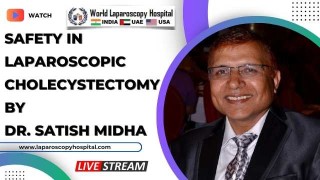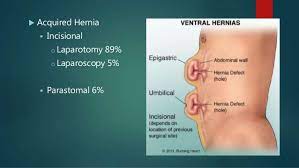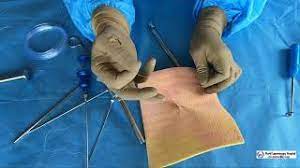Laparoscopic management of Rectal Cancer
Add to
Share
1,087 views
Report
2 years ago
Description
This lecture is about Laparoscopic management of Rectal Cancer by Prof. Steven D Wexner at World Laparoscopy Training Institute Dubai. Laparoscopic surgery for colorectal cancer is challenging because of the multiple steps required for oncological radicality. It entails mobilization of the bowel over a wide region of the insufflated abdominal cavity, high vascular ligation, and bowel resection. Rectal cancer starts in the lining of the rectum (rectal mucosa). Rectal cancer is cancer that begins in the rectum. The rectum is the last several inches of the large intestine. It starts at the end of the final segment of your colon and ends when it reaches the short, narrow passage leading to the anus. For rectal cancer, the overall 5-year survival rate for people is 67%. If the cancer is diagnosed at a localized stage, the survival rate is 90%. If cancer has spread to surrounding tissues or organs and/or the regional lymph nodes, the 5-year survival rate is 73%. Signs and symptoms of rectal cancer include: A change in bowel habits, such as diarrhea, constipation or more-frequent bowel movements. Dark maroon or bright red blood in stool. Narrow stool. A feeling that your bowel doesn't empty completely. Abdominal pain. Unexplained weight loss. Weakness or fatigue. Laparoscopic surgery for colonic cancer is a safe and established alternative to traditional open colectomy. The potential advantages of shorter length of stay, faster recovery, and fewer operative complications are well documented. The last 5 years have seen an increase in the number of laparoscopic colorectal operations as more surgeons learn this technique. Short and medium-term results have been encouraging with respect to oncological outcomes. However, laparoscopic surgery for rectal cancer remains a contentious issue. The increased complexity of operating within the confines of the pelvis and the greater risk of oncological compromise has led to some surgeons urging caution. We present the challenges associated with laparoscopic rectal cancer surgery and explain that appropriate patient selection, surgical planning, and laparoscopic experience are the key to successful outcomes. For more information: World Laparoscopy Hospital Cyber City, Gurugram, NCR Delhi INDIA Phone: +919811416838 World Laparoscopy Training Institute Bld.No: 27, DHCC, Dubai UAE Phone: +971525857874 World Laparoscopy Training Institute 8320 Inv Dr, Tallahassee, Florida USA Phone: +1 321 250 7653
Similar Videos






